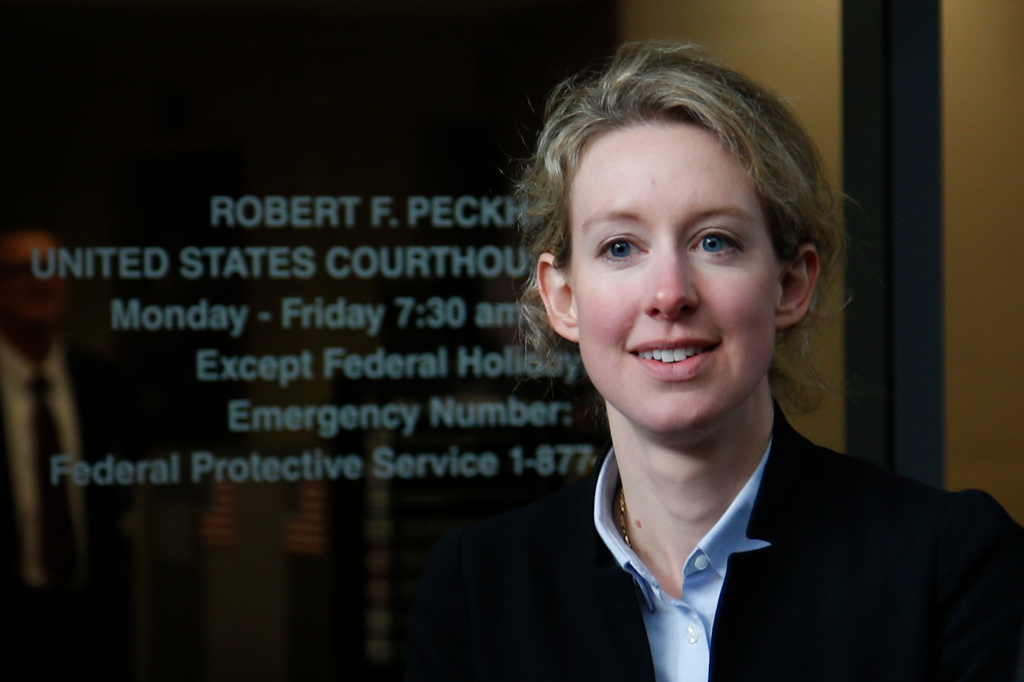After hitting Theranos founder Elizabeth Holmes with a twelfth felony fraud charge in May, federal prosecutors this week filed a new indictment showing the charge removed. Holmes is now back to facing 11 counts of defrauding patients, doctors and investors through claims about the blood-testing technology developed by her Palo Alto startup.
The removed charge, added via a supplemental filing from the government rather than in an indictment, concerned test results from a patient in Arizona. The Department of Justice confirmed Thursday that the new indictment that prosecutors filed Tuesday in U.S. District Court in San Jose, which showed only 11 fraud counts, represented the full list of charges Holmes and Balwani face.
Prosecutors allege Stanford University dropout Holmes, while claiming Theranos’ machines could conduct a full range of tests on just a few drops of blood from a finger-stick, knew the technology was unreliable, inaccurate and could conduct only a limited number of tests. The government claims “many hundreds” of patients were defrauded, with investors bilked out of more than $700 million. Holmes and her co-accused, former Theranos president Sunny Balwani, have denied the allegations, with lawyers for Holmes arguing in a December court filing that the government’s case was “unconstitutionally vague” and lacked specific claims of misrepresentation.
Following the May 8 addition of the now-removed fraud charge, Holmes’ legal team in a court filing called it illegal and unconstitutional, saying she had not given up her right to be tried on the 11-count indictment.
Holmes’ trial, originally set for this summer, was delayed by the coronavirus pandemic until fall, with jury selection scheduled to start Oct. 27. However, Judge Edward Davila has expressed doubt about whether that start date will stand, and has set a status hearing for July 20 to consider the matter.









